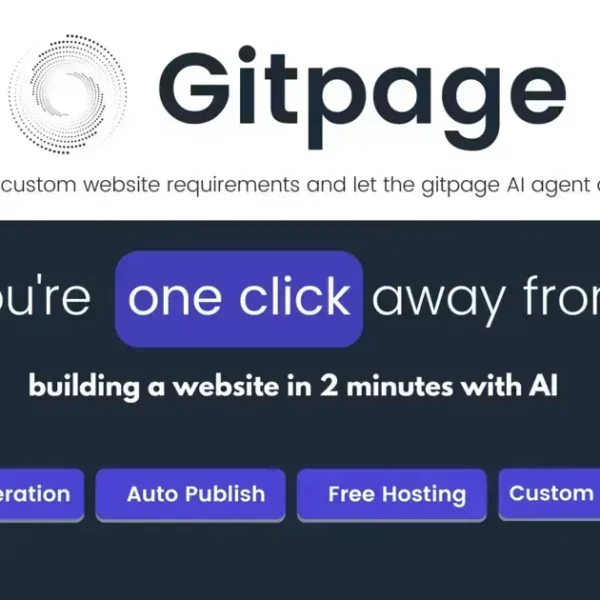Marketing software platforms are essential tools that streamline marketing efforts, improve efficiency, and enhance targeting through automation and analytics. Popular options like HubSpot and Mailchimp provide features tailored to varying business needs, enabling effective campaign management and real-time insights.
Marketing software platforms are transforming the way businesses engage with their customers. In a world where digital presence is everything, using the right tools can mean the difference between success and obscurity. These platforms not only streamline marketing processes but also enhance collaboration across teams, leading to more effective strategies and better results. Let’s dive deeper into what these platforms offer, their key features, and how to select the ideal one for your needs.
What are Marketing Software Platforms?
Marketing software platforms are comprehensive tools designed to help businesses manage their marketing efforts more efficiently. These platforms provide a range of features that integrate various aspects of marketing into a single system. This can include email marketing, social media management, analytics, and customer relationship management (CRM).
Functions of Marketing Software Platforms
The primary functions of marketing software platforms include campaign management, lead generation, customer engagement, and performance analytics. By consolidating these functions in one place, companies can streamline their marketing processes, reduce redundancy, and improve collaboration among teams.
Types of Marketing Software Platforms
There are different types of marketing software platforms tailored to specific needs. Some platforms focus on email marketing, while others might offer comprehensive solutions that include SEO, social media automation, and content management systems. Businesses should choose a platform that aligns with their marketing goals and operational requirements.
Importance of Integration
Integration is crucial when selecting a marketing software platform. The ability to connect with other tools or services such as web analytics and e-commerce solutions enhances the functionality of the platform. This integration allows businesses to have a unified view of their marketing efforts and customer interactions.
Choosing the Right Platform
When choosing a marketing software platform, consider factors such as user-friendliness, scalability, customer support, and the specific features that meet your unique business needs. Evaluate demos and reviews to find a solution that supports your marketing goals effectively.
Key Features of Effective Marketing Software

Effective marketing software platforms come packed with features that empower businesses to optimize their marketing efforts. Understanding these key features is essential for selecting the right platform.
1. User-Friendly Interface
A critical feature of effective marketing software is a user-friendly interface. This allows users to navigate the platform easily without extensive training. A clean and intuitive design improves efficiency and helps teams focus on their marketing goals.
2. Automation Capabilities
Automation is a vital component of modern marketing tools. Effective platforms should provide automation for tasks such as email campaigns, lead nurturing, and social media posting. This feature saves time and ensures that marketing efforts remain consistent and timely.
3. Analytics and Reporting
Robust analytics and reporting tools are essential for measuring success. Marketing software should offer real-time data on campaign performance, user engagement, and ROI metrics. This information helps businesses refine strategies and make informed decisions based on actionable insights.
4. Integration with Other Tools
Effective marketing software need to integrate seamlessly with other platforms such as CRM systems, social media tools, and web analytics. This interoperability allows for a smoother workflow and provides a comprehensive view of customer interactions.
5. Customization Options
The ability to customize the software according to your business needs is crucial. Effective platforms should provide customization options for creating tailored marketing campaigns, designing templates, and configuring dashboards to suit specific requirements.
How to Choose the Right Marketing Software for Your Business?
Selecting the right marketing software for your business can greatly impact your marketing success. Here are some essential steps to help you make the best choice.
1. Define Your Marketing Goals
Before you start looking at software options, it is important to define your marketing goals. Understanding what you want to achieve – whether it’s increasing brand awareness, generating leads, or improving customer engagement – will help you narrow down your choices.
2. Assess Your Budget
Your budget will play a crucial role in your decision. Marketing software can vary widely in cost, so it’s important to determine how much you can afford to invest. Remember to consider both the initial setup costs and ongoing subscription fees.
3. Consider Your Team’s Needs
Think about how your team will use the software. If your team has varying levels of technical expertise, you’ll want a platform that is user-friendly. Get feedback from team members to understand what features would be most beneficial.
4. Look for Integration Capabilities
Check if the software can easily integrate with your existing tools, such as your website, CRM, and email systems. Seamless integration can save time and reduce errors, creating a more efficient workflow.
5. Read Reviews and Request Demos
Before making a decision, read user reviews to understand the experiences of others. Most software providers offer demos or free trials, which allow you to test the platform’s features and determine if it meets your business needs.
Benefits of Using Marketing Software Platforms

Utilizing marketing software platforms provides businesses with numerous advantages that can enhance their overall marketing strategy. Here are some key benefits:
1. Improved Efficiency
Marketing software automates repetitive tasks, such as email campaigns and social media postings, allowing teams to focus on more strategic activities. This boost in efficiency helps businesses save time and resources.
2. Enhanced Targeting
With advanced analytics and segmentation features, marketing software allows businesses to target the right audience with precision. This targeted approach increases the likelihood of conversions and maximizes the return on investment (ROI).
3. Real-Time Analytics
Most marketing platforms provide real-time analytics and reporting, enabling businesses to monitor campaign performance continuously. This data helps marketers make informed decisions quickly, optimizing strategies for better results.
4. Increased Collaboration
Marketing software often includes tools for collaboration, allowing teams to work together more effectively. Shared documents, project management features, and communication tools streamline teamwork and enhance productivity.
5. Comprehensive Data Management
Managing customer data is simpler with marketing software. These platforms offer a centralized database to track customer interactions, preferences, and behaviors, providing valuable insights that inform future marketing efforts.
Top Marketing Software Platforms for 2023
For businesses looking to enhance their marketing efforts in 2023, several top-tier marketing software platforms stand out. Each of these platforms offers unique features tailored to meet diverse marketing needs.
1. HubSpot
HubSpot is a comprehensive marketing software platform that provides tools for inbound marketing, sales, and customer service. It includes email marketing, CRM, and automation features, making it suitable for businesses of all sizes looking to improve lead management.
2. Marketo
Marketo, part of Adobe Experience Cloud, is well-known for its advanced marketing automation capabilities. It offers robust analytics, lead management, and personalized marketing, helping businesses create targeted campaigns that drive conversions.
3. Mailchimp
Mailchimp is widely recognized for its ease of use and effective email marketing tools. In addition to email campaigns, it provides social media management, landing pages, and analytics features, making it ideal for small to medium-sized businesses.
4. Salesforce Marketing Cloud
Salesforce Marketing Cloud offers sophisticated marketing solutions for larger enterprises. With features like data management, customer journey mapping, and AI-driven insights, it helps businesses engage customers effectively across various channels.
5. SEMrush
SEMrush is primarily known for SEO and content marketing, but it also provides valuable marketing analytics and competitive insights. Its tools can help businesses improve their online visibility and develop effective strategies to stand out in competitive markets.
In Conclusion: Embracing Marketing Software Platforms
Choosing the right marketing software platform is key to improving your business’s marketing efforts. These platforms can help you streamline processes, enhance communication, and gain valuable insights into your audience.
With various options available, like HubSpot, Marketo, and Mailchimp, it’s important to consider your specific needs and budget. The right software can lead to better targeting, increased efficiency, and improved collaboration within your marketing team.
By adopting a suitable marketing software platform, your business can thrive in a competitive landscape and drive meaningful results.
FAQ – Frequently Asked Questions about Marketing Software Platforms
What are marketing software platforms?
Marketing software platforms are tools that help businesses manage and streamline their marketing efforts, including email marketing, campaign management, and analytics.
How can marketing software improve efficiency?
By automating repetitive tasks, such as email scheduling and social media posts, marketing software allows teams to focus on more strategic work, saving time and resources.
What features should I look for in marketing software?
Important features include user-friendly interfaces, automation capabilities, real-time analytics, integration with other tools, and customization options.
Which marketing platforms are popular in 2023?
Popular platforms include HubSpot, Marketo, Mailchimp, Salesforce Marketing Cloud, and SEMrush, each offering unique features to cater to different business needs.
How can I choose the right marketing software for my business?
Start by defining your marketing goals, assessing your budget and team needs, considering integration capabilities, and reading reviews or requesting demos.
What benefits can I expect from using marketing software?
You can expect improved targeting, enhanced collaboration, comprehensive data management, and real-time insights that help optimize your marketing strategies.




